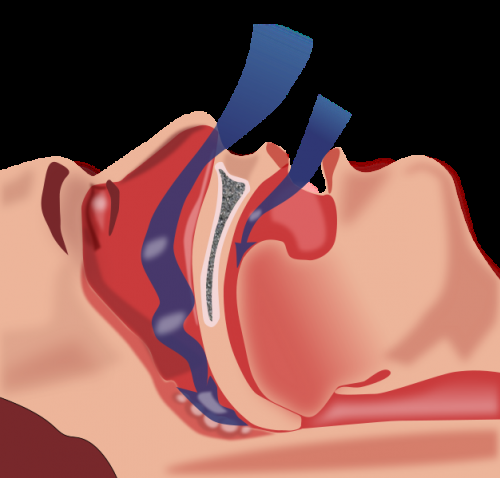Treating sleep apnea could reduce emergencies in hospitalized patients

According to research published today in PLOS ONE, treating high-risk hospitalized patients for sleep apnea may decrease the frequency of emergency rescues from hospital personnel, known as rapid response events.
"Our research showed that patients at high risk for sleep apnea experience more rapid response events during their hospital stay," said Sunil Sharma, M.D., Associate Professor in the Sidney Kimmel Medical College at Thomas Jefferson University and pulmonologist with Jefferson Sleep Disorders Center. "When we treated these patients with appropriate sleep apnea therapy, the frequency of rapid response events decreased in compliant patients."
Researchers screened 2,590 obese patients admitted to the internal medicine, family medicine and cardiology services with a validated questionnaire for sleep disordered breathing. The team found that high risk patients were more likely to experience a rapid response event (43.06 per 1,000 admissions) than low risk patients (25.91 per 1,000). High risk patients, 76 percent of patients screened, received a comprehensive sleep evaluation and started positive airway pressure (PAP) treatment if tolerable. As the team hypothesized, patients who were compliant with PAP treatment had less rapid response events (16.99 per 1,000) than those who were non-compliant (53.40 per 1,000 admissions).
Rapid response events or emergencies in the hospital included significant changes in blood pressure, heart rate, respiratory rate, or mental status; seizure; symptoms of a stroke; or chest pain. The rapid response protocol is a safety tool designed to detect and intervene during serious and potentially fatal changes in a patient's status.
"The study suggests the important role of treating underlying sleep apnea to improve patient safety and quality in the hospital. We recommend a multi-centric prospective study to confirm these findings and determine the cost benefit of such initiative to improve hospital patient safety," Dr. Sharma said.
More information: PLOS ONE, dx.plos.org/10.1371/journal.pone.0153790



















